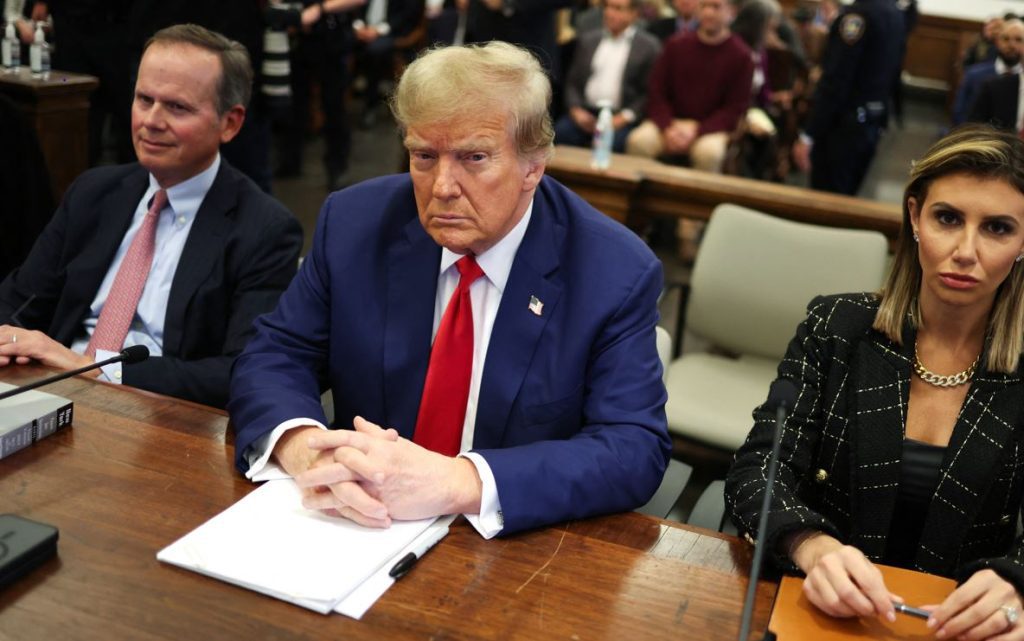The US Supreme Court will hear arguments Thursday about whether Donald Trump, as a former president, should be protected from criminal prosecution for acts he did while in office.
The decision could have important effects on the extent of US executive power — and Trump’s many legal problems as he tries to become president again.
Most constitutional law experts expect Trump to lose in court, but he may have already won politically.
By taking the case, the court’s nine justices delayed the start of Trump’s trial on charges of conspiring to overturn the 2020 election results won by Joe Biden, possibly indefinitely.
The question of whether a former president is protected from prosecution is untested in American law because, until Trump, no former president had been charged with a crime.
James Sample, a constitutional law professor at Hofstra University, noted that Richard Nixon engaged in criminal activity but resigned and was pardoned, so the issue of prosecuting a former president has never been directly addressed.
The Special Counsel filed the election conspiracy case against 77-year-old Trump in August and had pushed for a March trial start date, but Trump's lawyers filed many motions to delay the case, claiming that an ex-president has “absolute immunity.
A lower court rejected Trump’s immunity claim, but the Supreme Court agreed in February to hear the case.
Another lower court ruled that Trump’s immunity claim is “unsupported by precedent” or the US Constitution.
The judges said, “We cannot accept that the office of the Presidency places its former occupants above the law for all time thereafter.”
Despite this, Trump is hoping for a favorable hearing from a court that he had a significant role in shaping by appointing three justices to give it a conservative majority.
Sample and other scholars said that the high court was unlikely to rule that a president is completely immune from prosecution regardless of his actions as it could be abused by any president.
Sample said, “I think the scoreboard will read Jack Smith 1, Donald Trump 0.”
Like Sample, Steven Schwinn, a University of Illinois Chicago law professor, believes that the timing of the trial would be more important.
“Even if the court hands Trump a decisive, unqualified defeat, the prosecution will have to scramble to get the trial before the (November) election,” he said.
Trump has argued that without immunity, “a president will not be able to properly function, or make decisions, in the best interest” of the country.
Smith rejected that argument in a Supreme Court filing, saying, “The President’s constitutional duty to take care that the laws be faithfully executed does not entail a general right to violate them.”
Trump is dealing with 2020 election allegations in Georgia and has been charged in Florida for allegedly mishandling secret documents.
This week he attended the beginning of his New York trial for state charges of altering business records by making a payment to a porn star before the 2016 election.
The US Supreme Court is set to consider arguments Thursday on whether Donald Trump, as a former president, should have protection from criminal prosecution for actions he took while in office. The decision could have wide-ranging effects on the extent of US executive power — and Trump’s multiple legal problems as he runs for the White House again. […]
“The President’s constitutional duty to take care that the laws be faithfully executed does not entail a general right to violate them,” he said.
Trump faces 2020 election charges in Georgia and has been indicted in Florida for allegedly mishandling classified documents.
This week he sat through the opening days of his New York trial on state charges of falsifying business records by paying pre-2016 election “hush money” to a porn star.
AFP



